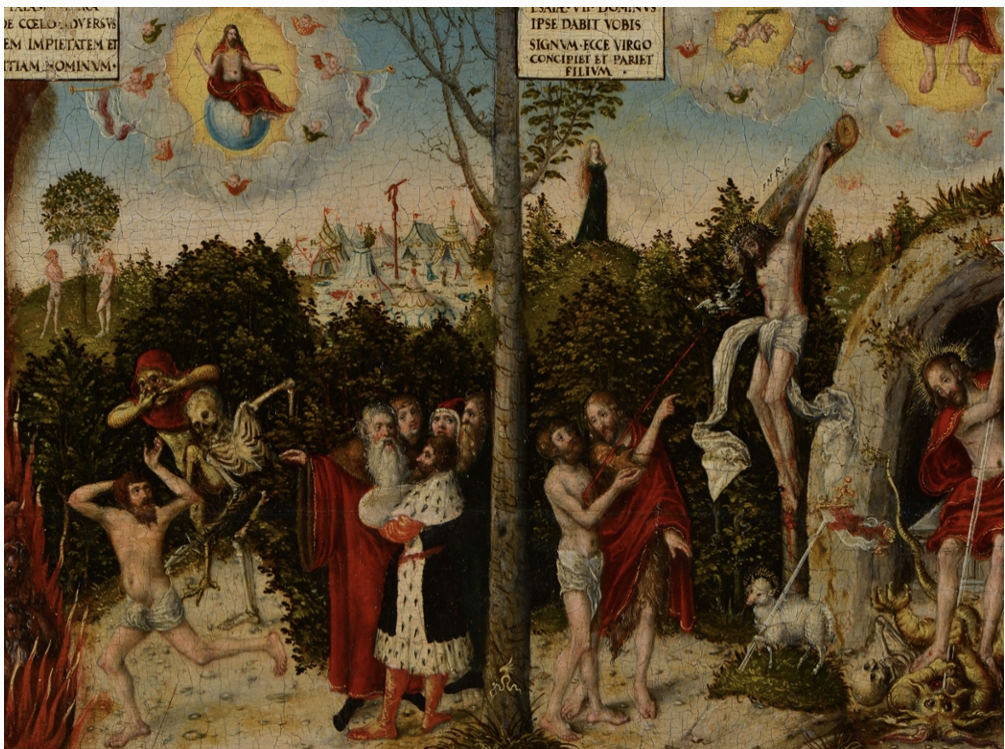"The Gospel of Romans": An Oratorio to Complement Handel's "Messiah"
Julian Reid
By Emily Hiemstra
It is remarkable that George Friedrich Handel’s masterpiece Messiah is one of the most popular and longest performed pieces of classical music in history. This work, composed in 1741, is enjoyed each year by audiences Christian and non-Christian alike. It seems to have become part of the holiday traditions enjoyed by society as a whole. How amazing that the gospel message is proclaimed around the world each Christmas season. As Paul the Apostle writes in Romans,
“For what can be known about God is plain to them, because God has shown it to them. For his invisible attributes, namely, his eternal power and divine nature, have been clearly perceived, ever since the creation of the world, in the things that have been made.” (Romans 1:19-20, ESV)
“Hallelujah!” A piece from G.F. Handel's Messiah - Rendered by the Gramophone Chorus of Ghana
As musician and composer, playing Messiah is always one of the highlights of the Christmas season; I look forward to it every year. It is was in the middle of performing a 2018 production of Messiah that it occurred to me that for a work with such depth and popularity, there had never been a sequel, modern, or complementary work written to Messiah.
Messiah follows the life, death and resurrection of Jesus Christ. It is by all means a stand alone work. But what Messiah doesn’t touch on is the new life in Christ. Messiah presents the gospel so clearly, but it is less clear on how the new Christian ought to live.
I wanted to use then the Book of Romans, (which is also the title of my piece) as it is Paul the Apostle’s masterpiece letter to the church in Rome. He so clearly articulates our fallen nature and our need for a Saviour. He details so beautifully the duties of a Christian living in new life in Christ. Paul follows a similar gospel arc that Handel uses in Messiah (whose texts are taken from all over the Bible), while delving much more into the practical side of the Christian life.
I settled on 8 texts from Romans that illustrate the movement of creation, fall and redemption. The texts are as follows,
i. Who Has Known the Mind of the Lord? (Romans 11:33-36)
ii. His Eternal Power and Divine Nature (Romans 1:20)
iii. None is Righteous (Romans 3:11-18)
iv. For All Have Sinned (Romans 1:16 & 3:23-26)
v. There is Now No Condemnation (Romans 8:1 & 8:29-32)
vi. Those Who Were Not My People (Romans 9:25)
vii. How Beautiful (Romans 10:14-16)
viii. May the God of Hope (Romans 15:13)
I chose these texts primarily because I wanted to present a clear gospel arc within the narrative of this work. I wrote these pieces in such a way that could be paired eloquently with selections from Messiah in future concerts. However, I wanted to make sure that if this piece was performed on its own, that the gospel was presented clearly and articulately. I chose texts that showed a clear contrast between our glorious Creator and his fallen creation. I also wanted to choose texts that were elegant and especially worthy of memorization.
In the Letter to the Romans, Paul deals extensively with the tension between Law and Grace. At the dawning of the Protestant Reformation, Lucas Cranach the Younger does the same in his painting “Law and Grace.” Taken from: http://pitts.emory.edu/exhibits/luther2016/index.cfm
I mainly used the ESV for the biblical translation, but also used short sections from KJV, NIV and NASB. I chose to use the ESV because I wanted to memorize biblical texts from the version I read at church, but also because it is a translation that is graceful and closest to the original Greek. Scripture memorization really was at the heart of this entire work. As a 29 year old, like most millennials my age, I struggle with including scripture memorization as part of regular Bible study. But I have found that setting Scripture to music has helped me memorize. I wanted to be as authentic as possible to the text, knowing that while the music was important, the text was of first importance.
I was fortunate enough to have this work performed at Grace Toronto Church in October 2019. It is a 30-minute work for soloists, choir and string quartet. It uses similar instrumentation as Messiah. I love working on multi-movement projects because although each movement is a stand-alone work, they come together to form a beautiful whole.
Working on the Book of Romans has given me a greater appreciation for oratorios and their place in the greater musical context. It has also deepened my love and my knowledge on Paul’s letter to the church in Rome. I hope this will only be the first of many works I am able to write in this wonderful style.
If you would like to learn more about the composer, you can find more information about her here.

